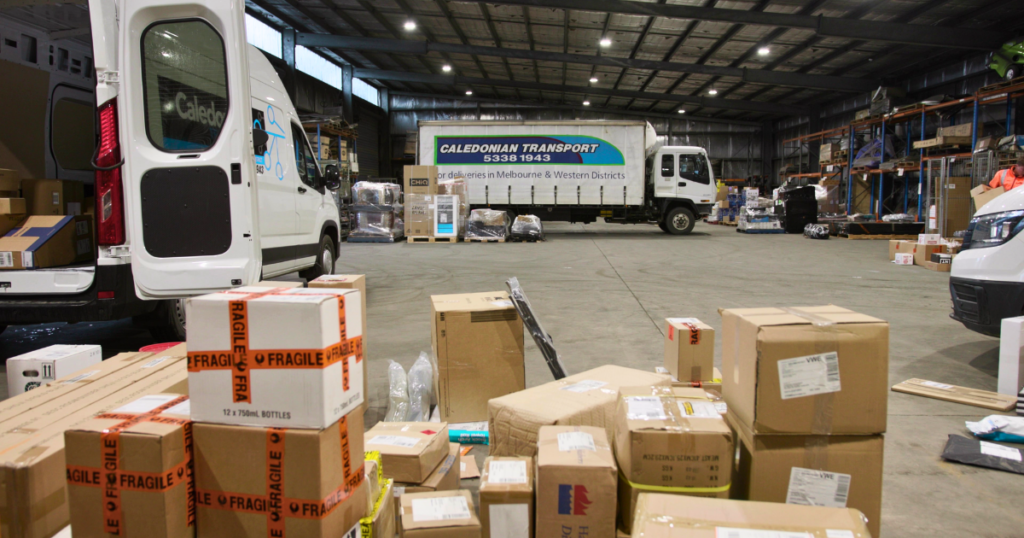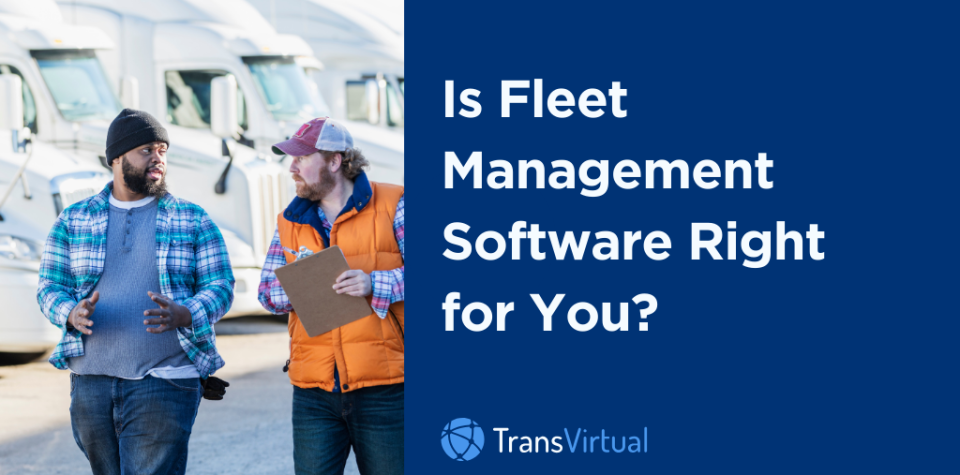Table of Contents
If you’re in the transport industry then you know that fleet management is complex and time-consuming. Cost management, maintenance tracking, compliance, and customer relationship management are just some of the many tasks that come with managing fleet operations.
Fortunately, the best fleet management software solutions are available to ensure operational efficiency.
Fleet management software work by automating otherwise tedious and time-consuming tasks. Reputable platforms also provide powerful fleet data to help you improve your operations over time.
Sounds good, doesn’t it? Let’s look into the nuts and bolts of fleet management software: what is it, how does it work, who might use it and how?
What is a Fleet Management Platform?
Fleet management solutions let you monitor vehicles, equipment, and drivers through an integrated platform in real time.
The features depend on the software you choose, but they typically come with the following core features:
Real-time tracking
Monitoring driver behaviour and performance management
Track fuel consumption
Schedule vehicle/equipment maintenance
Manage jobs from assignment to completion
Simplify compliance and document management
Fleet management technology captures information about vehicle movement, driver behaviour, and operational activities through fleet tracking software. You get instant access to data through vehicle tracking, including vehicle maintenance schedules, job status, and route information.
Usability is key to great software, so this information is usually simple to access with an easy-to-understand dashboard.
Actionable insights are also fundamental to any fleet management software, helping you identify areas for improvement and quickly take action.
How Much Does Fleet Management Software Cost?
Most fleet management software comes in the form of software as a service (SaaS), which means the vendor hosts the application in the cloud, and deployment is as simple as signing up for the necessary number of accounts. This model offers the benefit of accessing the software using any operating system and any web browser, with no installation required.
So what does this have to do with costs? With your fleet management software hosted on the cloud, pricing is typically more flexible. In simpler terms, it means that instead of a fixed fee, you only pay for what you use and you can easily scale up or down along with your business needs.
Why do businesses invest in a fleet management system?

If you’re a fleet manager, you’ll know that your biggest challenge is controlling costs.
And that means continually using data to see where and how you can make savings. The bigger your fleet, the more challenging this can be. Understanding the varying operational and maintenance costs that come with fleet management is crucial.
Some of the main pain points here include:
Fuel usage
Wages (including overtime)
Maintenance & repairs
Vehicle & equipment rental
Insurance
Fleet management software gives you detailed reporting on what’s driving up these costs, and how you can save. Specifically, using fleet management tracking and software to collect diagnostic data helps manage maintenance and take preventative measures to prevent unexpected downtime.
You also leverage its route optimization feature to save on fuel costs and ensure more timely deliveries.
Driver safety and regulatory compliance are also fundamental considerations. Reassuringly, fleet management applications help you stay up to date and compliant with national laws.
Who Uses Fleet Management Software?
There’s no doubt about it, fleet management helps improve efficiency for everyone onboard and it’s especially useful for midsize businesses and enterprises with larger fleets.
But lets drill in some more and quickly look at how different members of your team might use it.
Compliance Managers: to ensure fleets are meeting all national operating requirements. They can also use the data to proactively address driver risk management.
Fleet Managers: to monitor (and sometimes correct) vehicle and equipment location and usage, reducing unauthorised use.
Safety Managers: fleet management software helps them create training and safety programs and rewards programs. Driver scorecards can measure fatigued, distracted and dangerous driving.
Dispatchers: send one-off jobs or daily run sheets and monitor progress right through to completion. Real-time communication also means everyone is up to date with developments.
Accounting: finance teams use for efficient invoicing, timesheets and toll management, and other financial obligations and administrative tasks.
Executives: can see a high-level view of the entire business. The software measures KPIs so your leadership team can see where and how improvements are being made.
How do businesses use fleet management software?
While every business is different, there are common ways to use this software so that you improve fleet management, driver safety and your bottom line:
Preventative maintenance scheduling
To avoid unplanned downtime, fleet management software uses data from the vehicle’s diagnostics port to give visibility into the odometer, fuel tank, engine, battery, and other components, ensuring data security is paramount in protecting this sensitive information.
Monitoring driver behaviour
This allows you to identify unsafe driving and reward good driving. If you use this to create driver training programs, you’ll also create a safer working environment, with a strong emphasis on data security to safeguard the data involved in these processes.
Fuel consumption analysis
Identify inefficient fuel use by route, vehicle or driver. You can also track (and identify) unauthorised vehicle use and engine idling to reduce costs.
Job dispatch and management
Dispatch single jobs or daily run sheets and monitor through to completion, utilizing a variety of fleet management tools designed to cater to different business needs, from task creation and assignment to detailed tracking.
Data driven decisions
Fleet management software facilitates data-driven decisions through real-time monitoring, fleet and driver performance metrics, predictive analytics, cost analysis, and route information.
Experience Better Fleet Management with TransVirtual
Have you got a bit more clarity about fleet management systems and whether they’re right for your business? If you have any questions our friendly team is here to help. Get in touch today or call for a chat: 1800 975 305.
And please share this with your network if you found it helpful.



